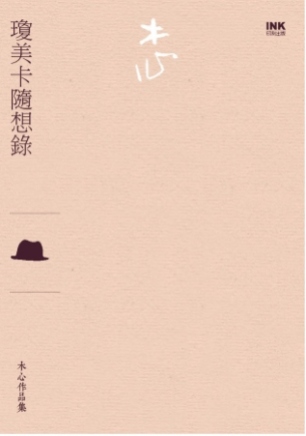Mu Xin is the pen name for author, painter and poet, Sun Pu (孙璞). He came from a wealthy family in Zhejiang and was the nephew of the famous Chinese author Mao Dun (茅盾). After graduating from art school he became a teacher and later a professor. During the cultural revolution he was arrested and imprisoned. After being released from prison, he continued to work in fine art. In 1982 he migrated to the United States, where he continued to write and paint. He was the first 20th Century Chinese artist to be housed in the British Museum. In 2006 he returned to his hometown in China. He died in December of 2011 after having been admitted to hospital for a lung infection in October.
About to Awaken
Man just awoken from his dreams, is man at his most basic.
In that instant, man’s nature is neither good nor evil, it’s empty, weak, vaguely disconnected .
A hero’s failure, the deflowering of a beauty, all occur at such a moment. An instant on the blurry line between the conscious and the subconscious, an involuntary moment.
Man’s effusiveness, his distance, his magnanimity, his miserliness, are all deliberately acquired behaviour. Rudely awakened from one’s dreams, the pious or the villainous, the gentleman or the pleb, the loyal lover or the cad, they’re all more or less the same, after a little time passes, the differences become clear as day.
However, why is it that the masterful battle strategies, that strangely beautiful inspiration, often comes out of these instants at which one is neither awake nor asleep?
It’s the persisting presence of the dream, when the routine logic of the mind has yet to kick in; instinct, intuition take advantage of the opportunity, and man is able to exceed the limits imposed by habit – instinct, intuition, are the fundamental intelligence formed by tens of thousands of years of experience, lying dormant in the deepest recesses of our intellect, they surface only occasionally, making up for lost time with their brilliance.
That which is brilliant and majestic can be found to have been achieved by way of man’s instinct.
As if the gods had intervened to help, man actually helps himself – this without doubt is something to rejoice in. However, one mustn’t be too happy.
將醒
剛從睡夢中醒來的人,是「人之初」。
際此一瞬間,不是性本善也非性本惡,是空白、荏弱、軟性的脫節。
英雄的失策,美人的失貞,往往在此一瞬片刻。是意識和潛意識界線模糊的一瞬,身不由己的片刻。
人的寬厚、澆薄、慷慨、吝嗇,都是後天的刻意造作。從睡夢中倏然醒來時,義士惡徒君子小人多情種負心郎全差不多,稍過一會兒,區別就明明顯顯的了。
然而高妙的戰略,奇美的靈感,也往往出此將醒未醒的剎那之間,又何以故?
那是夢的殘象猶存,思維的習性尚未順理成章;本能、直覺正可乘機起作用,人超出了自己尋常的水平——本能、直覺,是歷千萬年之經驗而形成的微觀智慧,冥潛於靈性的最深層次,偶爾升上來,必是大有作為。
宏偉、精彩的事物,都是由人的本能直覺來成就的。
若有神助,其實是人的自助——這無疑是可喜的。不過不栗太高興。
(Translation by Conor Stuart/翻譯:蕭辰宇)

